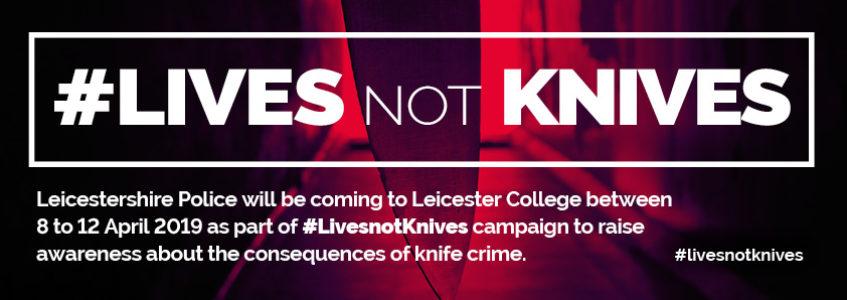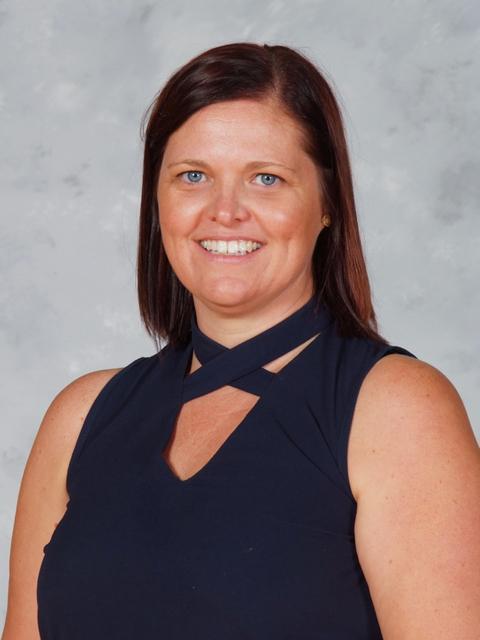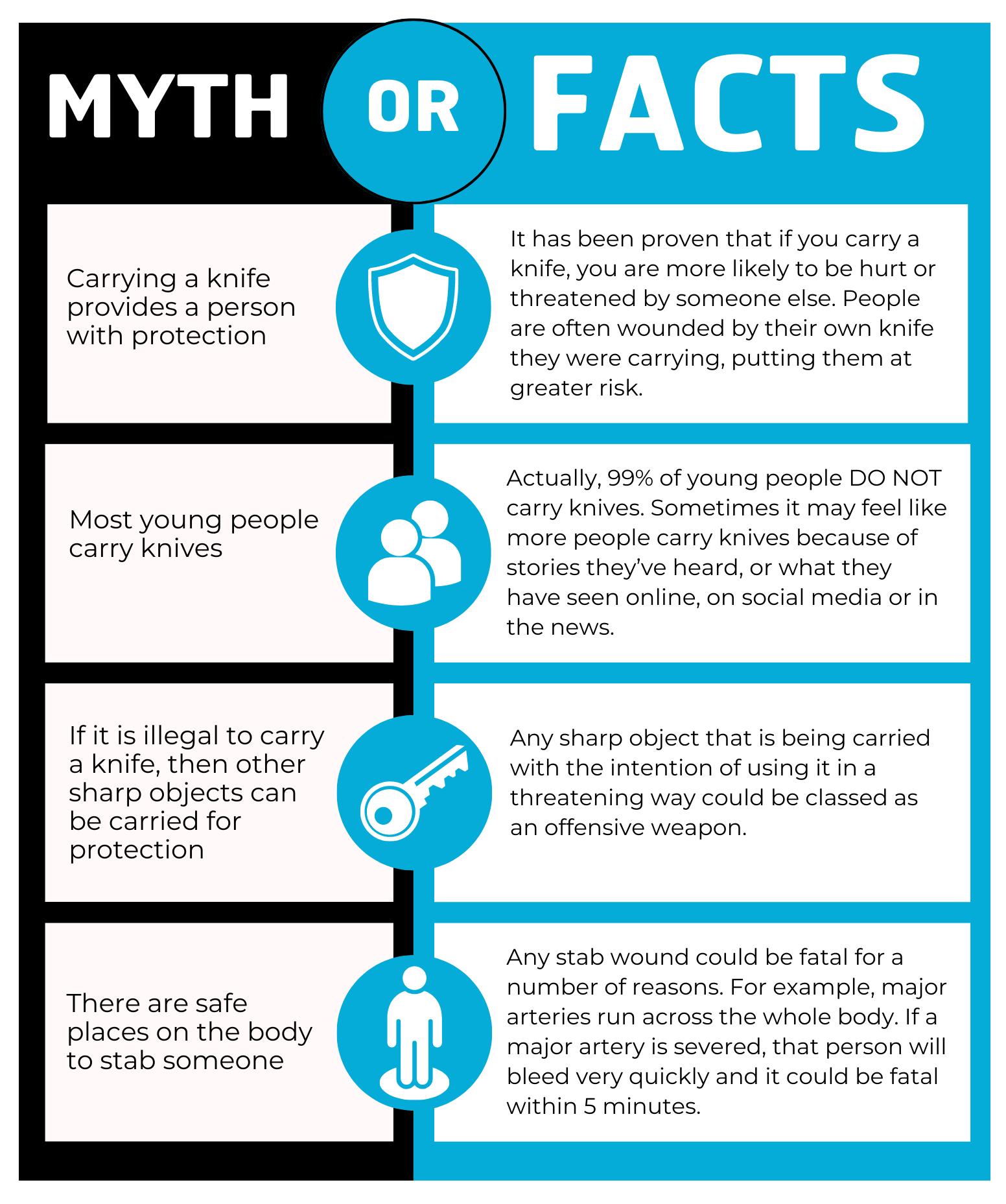Safeguarding at Honywood School
for you If you have a question about safeguarding our hope is that our monthly bulletins will be able to provide the answer or at least some signposting to where you may get the answer This month our focus is on Knife Crime.

Need to Talk, share a concern or ask a question?
Who can learners talk to at School?
● Learning Group Leader

● Cohort Leaders
● Pastoral Leaders
● Class teachers
● Learner Reception
● Learning Support Assistants
● Learner Wellbeing App on iPad
● Senior Leadership Team
● Mrs Nichols - Safeguarding Lead


● Mrs Hickford - Deputy Safeguarding Lead
● Mr Caygill - Deputy Safeguarding Lead

● Mr Robertson - Attendance & Welfare Officer

Issue 012: Friday 31st March
Keeping our comm
W u l
Mrs Nichols Mrs Hickford Mr Caygill Mr Robertson
Learner Information
Please refer to the Honywood Wellbeing app on your school iPad, link below https://sites google com/honywoodschool com/learnerwellbeing/home
If you need Wellbeing & Mental Health support out of school, please contact:
YOUNG MINDS - text YM to 85258, or https://youngminds.org.uk/find-help Kooth - your online mental wellbeing community https://wwwkooth com/
Child and Adolescent Mental Health Service
0300 300 1600 to get in touch directly. For the out of hours crisis support, please call the general NELFT switchboard on 0800 953 0222. and ask for the CAMHS Crisis Support Service
Childline 08001111
Weekly Bullying and Child on Child Abuse reporting form
All learners and parents receive a weekly email link and reminder that if they have any concerns about the behaviour of any learners in school that could be considered bullying and/or child on child abuse, they may report it using the following link:
https://docs google com/forms/d/e/1FAIpQLSfs8npY9aDQcY3WsRttFcI5PB0NGPaBgKR4aRdtWdr HlogNWQ/viewform
If you have any questions about the form before completing it please feel free to email me scaygill@honywoodschool.com Similarly if you have any feedback regarding the structure/questions of this form please do share this too as the form could evolve over the coming weeks with any feedback shared
Parents/Carers
For support and information please contact:
For information about support for children, young people and families please see the Essex County Council website
If you are a parent or carer, child or young person and you need support, you can phone 0345 603 7627 and ask for the Children's Line
Useful General Policies
Safeguarding Policy
https://www.honywoodschool.com/page/?title=SAFEGUARDING&pid=146
KCSIE September 2022
https://wwwgovuk/government/publications/keeping-children-safe-in-education--2
Responding to Harmful Sexual Behaviours Policy
https://wwwhonywoodschool com/attachments/download asp?file=318&type=pdf
Knife Crime - The Law
Below outlines the laws around carrying a knife and offensive weapons:
● It is an offence to carry a knife* in a public place (such as a road or in a school) or to carry any article which has a blade or is sharply pointed.
● It is also an offence to carry an offensive weapon in a public place This includes any article made, adapted or intended for causing injury as detailed below:
○ Made: Made to cause injury, such as a knuckle duster or bayonets
○ Adapted: Something innocent that has been adapted to cause injury, such as a broken bottle or a chair leg with nails
○ Intended: Anything else, such as an umbrella or pen that is intended by the person to be used to cause injury to others
● Carrying a knife includes: in your hand, a pocket, in the boot of your car or if someone else is carrying a knife for you
● Exceptions include if you are carrying the knife as part of your job, such as a tool for a trade However, forgetfulness, ignorance to the law or general self defence are not reasonable excuses if you are caught carrying a knife
● It is an offence to use any knife in a threatening way (even a legal knife)
● It is also an offence to sell a knife to anyone under 18 If you are concerned that your child has been sold a knife, you can contact the Citizen’s Advice Bureau to report the trader to Trading Standards
* Unless it has a folding blade 3 inches long or less. A list of illegal knives can be found here: gov.uk/buying-carrying-knives
Understanding your child
Why would young people join a gang?
There are lots of reasons why young people might join a gang, which as a parent you may not understand Some of the reasons are listed here:
● Respect and status
● To gain friends
● A sense of belonging
● Excitement
● To find a substitute family
● Power
● Protection
● Money
● Peer pressure
They might not know they are part of a gang For lots of young people, being part of a gang gives them a sense of belonging and identity In adolescence it’s normal to start separating from your family with peer groups becoming more important than before. Gangs can take advantage of this and make young people feel part of a different ‘family’ so they might not want to leave Even if they do, leaving or attempting to leave can be a really scary idea They might be frightened about what will happen to them, their friends or their family if they leave Often young people will not consider themselves to be part of a ‘gang’ but just that they have strong commitment to their ‘friends’.
Young women and young men are often affected differently by gangs For young women their involvement may be harder to spot – or for them to recognise. They may be asked to hide weapons or drugs, or be targeted by male gang members in acts of revenge or gang initiations All of this tends to go on ‘behind closed doors’ Girls who are linked to gang members (sisters, girlfriends, friends, cousins, daughters) as well as female gang members themselves, are at risk of emotional, physical and sexual violence. Again young women might not consider these friends to be gang involved, or if they do, they might not think that what they are doing is important or exploitative
Why would young people carry a weapon?
There are many reasons for children to decide to carry a knife or weapon This list is not exhaustive but gives some examples:
● Fear of being a victim of knife crime – it could have been a specific threat, or a perceived fear
● General self-defence – the ‘just in case’ reason
● They don’t know it is wrong or illegal
● To intimidate others (by way of protection)
● Peer pressure
● To earn respect
● Street cred
● They may feel disenfranchised
● Involvement in criminal activities
Grooming
What is grooming?
Some people form relationships with young people to use them for their financial gain through drug dealing or to participate in sexual activities People who do this want young people to think they are a friend, or a boyfriend or girlfriend They want to gain their trust to obtain power over them They might also use bribes, threats, humiliation and even violence to get power over them They use

that power to force the exploited child to move and sell drugs, and to have sex, or do sexual things with them, and sometimes other people
These are forms of exploitation and are crimes.
Online grooming is when someone builds an online relationship with a young person and tricks them or pressures them into doing something sexual This can happen on social networking websites, instant messaging, photo sharing apps, chat rooms, dating apps and online gaming sites
Exploitation happens to both boys and girls and can be difficult to spot. Often people think they’re in a good relationship, even after things have turned bad Children being criminally exploited often feel they have no other option but to continue working for their exploiter and often find themselves in debt slavery It can be hard to spot when someone is using or controlling you
What are controlling behaviours?
● Someone is checking their phone and controlling who they talk to
● Someone is telling them what to wear and how to dress
● They are being told where they can and can’t go
● They are being told to send a nude selfie to someone
● They are being pressured to commit crime
● They are being pressured to have sex
● They are being physically attacked
Having the conversation with your child
Getting started:
Find the right time for your child, when it is quiet and you can have some privacy The conversation needs to take place wherever they feel safest. If home is crowded, you could talk in the car, walking the dog or on the way to the shops Be available and ready to listen Reassure them that they can be honest with you and let them know you are not there to judge them Believe you can make a difference
● Your child might not tell you much but what you say, think and feel is important to them Listen
● While we often want to ‘resolve’ our children’s problems, this is complex and takes time Listening is the most important step – for both of you Even if they aren’t saying much, make sure you ‘hear’ them
● Don’t rush to give advice that they might not be ready to hear
● Your child may be reluctant or scared to talk at first – it’s a difficult subject.
● Be patient and try not to react straight away to what they tell you Let them talk as much as they want to first
● Encourage them to share their fears and worries.
● Sharing your own fears can help – tell them how much you worry about their safety and their future Be Positive
● Show them they are being listened to Reassure them that the vast majority of young people don’t carry a knife and aren’t part of a gang.
● If they are fearful of someone or something specific, tell them that it can be dealt with without the need for them to carry a knife Stick to the facts
● They might not think you know what you’re talking about so a little preparation can really help.
● Use the facts and law information in this toolkit to help you Be clear about false ‘bravery’
● Raise the point that walking away from confrontation or a fight is the braver thing to do. If someone pulls a knife on them, the safest, wisest thing to do is to walk away. In ten years time, nobody will remember they walked, but if they ‘stand their ground’ the consequences could last a lifetime or even end someone’s life The impact
● Help them reflect on how their actions could affect the people that care for them the most
● Using a knife or being involved in a gang could place others at risk
● If they were injured, who would be affected? Be realistic
● Your child may feel you have no experience of knife crime, gangs or the challenges they face
● Are there any examples from your own childhood that you can draw upon?
Practical Tips
Below are some practical tips to help you to understand whether your child needs help or support Most young people live positive lives and some behaviour can just be typical teenage behaviour However, the tips below may help you to recognise whether your child is at risk
● Keep engaged with your kid’s lives and social media
● Know where they are and who they are with – do they have a new circle of friends?
● Are they in a relationship with or hanging out with someone/people that are older and controlling?
● Are they becoming less engaged with you?
● Are they receiving more calls or texts than usual?
● Do they suddenly have lots of money/lots of new clothes/new mobile phones? • Do they have unexplained injuries?
● Do they seem very reserved or seem like they have something to hide?
● Do they seem scared?
● Are they self-harming?
● Are they skipping school?
● Know what you have in the kitchen and in toolkits
● Keep an eye out for any online purchases and what is delivered to your home
● Increasing drug use or being found to have large amounts of drugs on them
● Are they always going missing from school or their home?
● Are they travelling alone to places far away from home?
Of course, there could be all sorts of reasons other than ‘gangs’ why children and young people exhibit any of the above behaviours and the checklist above is the kind of thing that most parents will be aware of and watching for. You know your child and what are significant changes for them. Remember the most protective factors for your children will often be their family/carer relationships If you are worried you can contact the numbers on the ‘Where to find support’ page at the end of this guide
County Lines
What do we mean by County Lines?
County Lines is a serious issue where criminal gangs set up a drug dealing operation in a place outside their usual operating area. Gangs will move their drug dealing from big cities to smaller towns in order to make more money The ‘lines’ refer to the phones that are used to sell the drugs through In some cases children and young people who are registered as missing are being used in county lines.
Gangs exploit the fact that they have run away from home and recruit these vulnerable young people to travel to areas away from their home town to sell drugs for weeks at a time This can be a form of child trafficking as young people find themselves alone, in a dangerous unsafe environment being exploited to work – selling drugs
They are likely to exploit children and vulnerable adults to move (and store) the drugs and money and they will often use coercion, intimidation, violence (including sexual violence) and weapons
General Mental Health Advice & Support for Parents
This May Help
https://thismayhelp me/
This May Help is a website that has been created to support parents and carers with concerns about their child’s mental health The subjects covered on this website have been chosen by families and young people who have gone through their own mental health challenges What helped them may also help you
Young Minds
https://www.youngminds.org.uk/parent/parents-helpline-and-webchat/ Call our Parents Helpline for detailed advice, emotional support and signposting about a child or young person up to the age of 25
NHS Website
https://wwwnhs uk/mental-health/children-and-young-adults/advice-for-parents/
The NHS website has information on many different challenges faced by young people Find advice and support for parents who have children or teenagers with mental health Problems
Anna Freud
https://www.annafreud.org/parents-and-carers/child-in-mind/
Anna Freud Centre produced a series of expert podcasts to help parents understand and manage child and family mental health problems The series, Child in Mind, is presented by BBC Radio 4 presenter Claudia Hammond. In each 20-minute episode, she discusses an important issue in child and family mental health with an expert and a young person or parent
Self Ham/Suicide Advice & Support for Parents
Papyrus
https://wwwpapyrus-uk org/wp-content/uploads/2020/08/Supporting-Your-Child-A-Guidefor-Parents.pdf
This guide has been created following discussions with parents who have experience of supporting a young person struggling with their mental health The aim of this guide is to provide information and guidance and to help parents cope with a young person who is struggling with thoughts of suicide. To reassure them that they are not alone.
Oxford health
https://wwwoxfordhealth nhs uk/wp-content/uploads/2016/09/copy of coping-with-selfharm-brochure final copyright.pdf
This guide was developed from talking to parents and carers of young people and is aimed at helping parents, carers, other family members and friends cope when a young person is self-harming. It includes information on the nature and causes of self-harm, how to support a young person when facing this problem and what help is available
Spending time with your teen - Advice for Parents
Ministry of Parenting
https://wwwtheministryofparenting com/wp-content/uploads/2019/12/10-Ways-toSpend-Quality-Time-With-Your-Teen- pdf? ga=2 80853471 917799071 1676377386-
1296894209
1676377386
It can be difficult to find ways to give teens positive attention. Now that they’ve outgrown a lot of childhood activities, it may be more difficult to find family activities they are interested in Here are 10 ways to create quality time to spend with your teen, even if it’s just a few minutes each day
Exam Stress Advice for Parents
Family Lives
http://www.familylives.org.uk/advice/teenagers/school-learning/exam-stress
Exam time can be very stressful for everyone in the family as your teen may be feeling anxious and under pressure, this 8-minute read talks you through some ways parents can support
LGBTQ+ Advice for Parents
All Sorts Youth
https://wwwallsortsyouth org uk/what-we-do/faq-for-parents-carers
Allsorts Family Support Service emerged in 2013 in response to the need for parents/carers of children and young people who are Lesbian, Gay, Bisexual, Transgender or exploring their sexual orientation and/or gender identity (LGBT+), to connect and provide each other with support, community and friendship They also have a FAQs for Parents/Carers to help advice and gain understanding and insight.
ASD and ADHD Advice for Parents
You Tube series by Oxford Health: https://www.youtube.com/playlist?list=PLKw7kjGJdcXCiene7r3m8qYSN2T8Vxb1K
This animated series is for parents of neurodiverse children and young people. The experiences portrayed in the animations reflect the real-life experiences of children, young people and families who use the service Real-life practical strategies are mentioned in an animated story format to help parents of children with ADHD or autism manage common experiences they face at home
Autism Anglia: https://www.autism-anglia.org.uk
An independent charity that provides support to autistic children, adults and families in east Anglia SNAP wwwsnapcharityorg
A voluntary organisation based in Brentwood offering support to parents and carers of children with any special need or disability
The Maze Group wwwthemazegroup co uk
Based in Ipswich this support group offers courses to help parents understand their child’s diagnosis and their additional needs
Bereavement Advice for Parents
Childhood bereavement network
https://childhoodbereavementnetwork org uk/if-you-need-help-around-death/bereavedchildren-and-families/resources-families
Resources that may help you or your family with a bereavement
Winstons Wish
https://wwwwinstonswish org/supporting-you/supporting-a-bereaved-child/ Winston’s Wish offer a bereavement service by way of advice, guidance and bereavement support to children, young people, and families before and after the death of a parent, sibling or other important person On their website you will find guidance on topics including, support for grief and loss.
Recommended Reading
Helping Your Anxious Child – Ronald Rapee
Breaking Free from OCD: A CBT Guide for Young People and Their Families – Jo Derisley
Parenting a Child with Emotional Behavioural Difficulties – Daniel Hughes Depression: A Teen’s Guide to Survive and Thrive – Jacqueline Toner Claire Freeland https://wwwsocialworkerstoolbox com/parents-guide-youth-violence-knife-crime-gangs/
https://www.westminster.gov.uk/sites/default/files/advice for parents and guardians abou t_gangs.pdf
Safeguarding Support Resources for Parents
Safeguarding when learning to drive.
We are aware that from time to time, concerns are raised by post-16 learners and their parents in Essex about inappropriate conduct of driving instructors. We have been given the following information to help to safeguard those accessing driving lessons: https://wwwgovuk/learn-to-drive-a-car
https://www.gov.uk/find-driving-schools-and-lessons (all instructors on the list will have had a DBS check and passed all the qualification tests to become an instructor) https://wwwgovuk/complain-about-a-driving-instructor
Parent zone - County Lines: https://parentinfo org/article/county-lines-what-is-it-and-who-is-at-risk?
Parent zone - Sleep Advice: https://parentzone org uk/article/how-sleep-easy-during-global-pandemic
Parent line Family Support: Parentline family support and bullying helpline
Domestic Abuse support: #ReachIn
Key Contacts in School
Please see the key contact list below to support you to address any concerns
Leadership Team
Mr Saunders Headteacher jsaunders@honywoodschool com
Mr Munro Deputy Headteacher jmunro@honywoodschool com
Mr Caygill Deputy Headteacher scaygill@honywoodschool.com
Mrs Hickford Deputy Headteacher jhickford@honywoodschool com
Mrs Downes Assistant Headteacher pdownes@honywoodschool com
Mirs Bansropun Assistant Head abansropun@honywoodschool.com
Mr Smith Assistant Head dsmith@honywoodschool.com
Mr Williams Assistant Head jwilliams@honywoodschool com
Safeguarding, welfare and support team
Mrs Nichols Safeguarding Officer knichols@honywoodschool com
Mr Robertson Attendance Concerns crobertson@honywoodschool com
Mrs Loydall Medical concerns medical@honywoodschool.com
Cohort Leaders
Cohort 7 Mrs Reece ereece@honywoodschool com
Cohort 8 Mr Hall shall@honywoodschool.com
Cohort 9 Ms Ward tward@honywoodschool com
Cohort 10 Ms Martin amartin@honywoodschool com
Cohort 11 Mr Scott dscott@honywoodschool com
SEND team
Mrs Vaughan SENCO cvaughan@honywoodschool.com
Mr Wood Deputy SENCO (Autism Hub)mwood@honywoodschool.com







